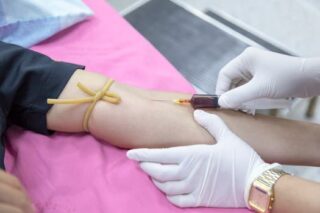
More Integrative Medicine Articles
Fastest Blood Test and Fasting Guidelines: Can You Drink Water?

When it comes to undergoing medical evaluations, some tests are more time-sensitive than others. You may be wondering about the fastest blood test and what you can do to ensure accurate results. Often, fasting is required for certain blood work. But what does that mean for your daily routine, particularly your hydration habits?
The Fastest Blood Test: Understanding Its Purpose
Blood tests are a common diagnostic tool that doctors use to monitor health and diagnose illnesses. Some tests deliver quicker results, like a basic metabolic panel, which provides insights into your body’s chemical balance. To achieve the fastest blood test results, it’s vital to adhere to any preparation guidelines given by your healthcare provider.
Fasting before blood work is a common requirement, and guidelines can vary depending on the test. This preparation usually involves abstaining from eating and drinking certain substances for a specified period, usually those affecting glucose levels, such as the lipid panel. You might ask, “Fasting before blood work can you drink water?” The answer is generally yes, as water does not interfere with most tests and is advised to stay hydrated.
Fasting and Hydration Guidelines
If you’re scheduled for a fasting blood test, your healthcare provider should inform you about specific fasting requirements. Typically, the fasting period before a blood test is about 8-12 hours, but how many hours to fast before blood test depends on the test. Drinking water is usually permitted, and recommended, to keep your veins hydrated and facilitate easier blood drawing.
Although most beverages, such as coffee and tea, are restricted during fasting, water is an exception. It helps to prevent dehydration and keeps your circulatory system running smoothly. For tips on hydrating properly, consider learning more from reliable nutritional resources, like this article about the importance of a high-protein diet for overall health.
Maximizing Blood Test Efficiency
To ensure your blood test is as quick and efficient as possible, follow the prescribed fasting instructions and stay well-hydrated. This practice not only aids in producing the fastest blood test results but also contributes to more accurate readings. The key lies in preparing for your appointment by understanding what does and does not impact the tests.
Another consideration is when to schedule your test. Opt for a morning appointment, which may be more convenient as your fasting period will coincide with your overnight sleep. Drink a glass of water upon waking to remain hydrated and promote ease during the procedure.
Common Questions About Fasting and Blood Tests
Understanding why fasting is necessary can alleviate some anxiety associated with blood tests. Fasting ensures that external variables, like food and drink, do not influence your lab results. This requirement is especially critical for tests measuring blood glucose or cholesterol levels.
For additional information about health and nutrition, Wikipedia’s health page offers a wealth of resources, with articles improving your health literacy.
Conclusion: Achieving the Fastest Blood Test
By following proper fasting guidelines and staying informed, you can facilitate the fastest blood test with minimal disruption to your day. Remember that careful preparation is integral to receiving accurate and timely results. Whether you’re fasting or just curious about how the process works, staying informed ensures you get the most efficient care possible.
- Fasting is often required for certain blood tests to ensure accuracy.
- Water is usually allowed and beneficial during fasting.
- Plan your test in the morning to align fasting with sleep.
- Consult your healthcare provider for specific fasting instructions.
- Staying informed can lead to more efficient healthcare experiences.
How many hours should I fast before a blood test?
Generally, the fasting period is between 8 and 12 hours, depending on the type of test.
Can I drink water while fasting for a blood test?
Yes, drinking water is encouraged to stay hydrated and can aid in the blood drawing process.
What is the purpose of fasting before a blood test?
Fasting ensures that food or drink does not affect the test results, leading to more accurate diagnostic information.
Should I avoid all beverages during fasting?
Water is typically allowed, but other beverages like coffee, tea, and alcohol should be avoided.
What if I forget and eat before my test?
If you accidentally eat, inform your healthcare provider immediately for further instructions.
Other Articles You May Find of Interest...
- The Essential Guide to Apexogenesis for Healthy Dental Development
- Unlocking Health Insights Through the Organic Acid Test
- Integrative Health
- Exploring the Importance of the Tail of Spence in Breast Health
- Navigating Life After Fontan Surgery: Tips for a Healthier Future
- Exploring the Significance of Kehr Sign in Diagnosing Abdominal Pain
- Navigating the J1100 Code for Comprehensive Health Coverage














